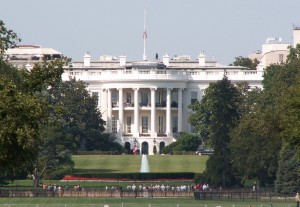White House pimps Bieber for immigration but neglects email privacy reform

By Josh Peterson | Watchdog.org
WASHINGTON — The White House used an online petition calling for the deportation of Canadian pop star Justin Bieber to promote its immigration agenda, yet a petition regarding American’s email privacy remains unanswered.
EMAIL PRIVACY: The White House would rather respond to a petition about Justin Bieber than one about email privacy.
The anti-Bieber petition, hosted on the White House’s “We the People” website, surpassed the 100,000-signature threshold in January. As of Monday evening, the petition had collected nearly 274,000 signatures.
“So we’ll leave it to others to comment on Mr. Bieber’s case, but we’re glad you care about immigration issues,” said the White House in a response Friday, before launching into talking points promoting President Obama’s plan for the nation’s immigration system.
A petition calling for the modernization of the Electronic Communications Privacy Act of 1986 (ECPA), which reached the 100,000-signature threshold in December 2013, on the other hand, has yet to receive a response from the White House.
The law now allows for federal agents to subpoena electronic records such as emails and text messages stored on an Internet service provider’s servers longer than 180 days.
Privacy advocates and lawmakers on Capitol Hill have all been pushing to reform the law and require federal agents to obtain search warrants before accessing a suspect’s stored electronic communications.
One such bill, the Email Privacy Act, proposed by Kansas Republican Representative Kevin Yoder, has bipartisan support from 200 cosponsors.
Privacy advocates have also called out the Justice Department, Internal Revenue Service and the Securities and Exchange Commission over the past several years for their interpretations of the law.
Despite broad support for reform, the SEC is seen as an obstacle to achieving that reform.
The commission is not a criminal justice agency and does not have the authority to obtain search warrants; it does, however, possess the power to subpoena the electronic documents of targets of the its investigations. The commission does not want reform efforts to take away that authority.
The Digital 4th Coalition — composed of the American Civil Liberties Union, Americans for Tax Reform, Center for Democracy & Technology and Heritage Action for America — recently sent a letter to Mary Jo White, chairwoman of the SEC, to strike a compromise.
Digital 4th wants the SEC to directly subpoena the Internet user it is targeting instead of the third-party provider holding the documents.
“We are offering compromise language even though we believe the SEC has made contradictory or misleading statements about its current and past practices,” wrote the coalition.
President Obama also missed an opportunity during his State of the Union address to discuss the law, Watchdog.org previously reported, making a passing mention of “privacy” and “surveillance” one time each during his 7,032 word speech.
Electronic privacy protections resonated with Internet users in America following leaks about the National Security Agency’s phone and Internet surveillance programs by former agency contractor Edward Snowden.
A survey conducted in December 2013 by McLaughlin & Associates and Penn Schoen Berland, about which Watchdog.org previously reported, found 81 percent of survey respondents considered wireless services an essential part of daily life.
A similar finding was published by the Pew Research Center’s Internet Project in late February, which reported more than half of Internet users would find it “very hard” to give up the Internet.
Not content to wait for the federal government to act on the issue, state lawmakers around the country have been pushing their own surveillance reform bills. In Utah, for example, Gov. Gary Herbert signed into law at the end of March a bill banning data obtained from an electronic device without a warrant from being used in court as evidence.
In Missouri, state residents could have the opportunity this fall to codify electronic privacy protections into their state constitution, which Watchdog.org previously reported.
Contact Josh Peterson at jpeterson@watchdog.org. Follow Josh on Twitter at @jdpeterson







